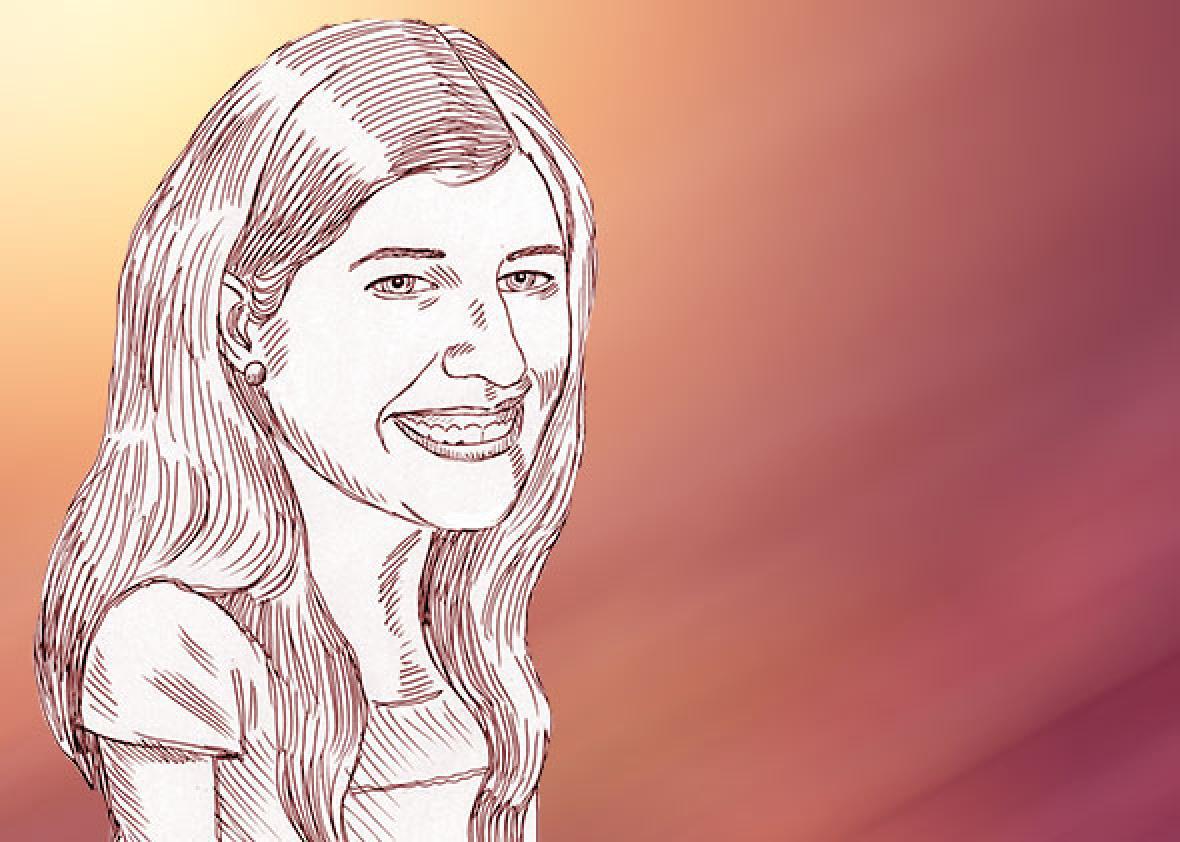Hi, Slate Plus-anistas!
I’m Heather, and I’m a copy editor here at Slate. The reason you might not recognize my name or face is that, as a member of our crack production team, I’m more of a behind-the-scenes presence at the magazine. What’s it like to be a copy editor? Copy chief Meg Wiegand gave a glimpse into la vie copy in this week’s poll about Slate style, a vote you should definitely take part in, especially if you are on the side of good and think capitalizing the word court every time it refers to the Supreme Court would be an abomination. (Sorry, Mark Joseph Stern, don’t sue me!)
It’s true, as a copy editor, I spend a good deal of time doing stuff like adding hyphens to articles—and em dashes too, but also commas and semicolons; sometimes I even remove the hyphens I have just added after a period of internal deliberation. Copy editing an article for Slate is kind of like adding sprinkles to a bowl of already-delicious and almost-ready-to-eat ice cream, or, if necessary, getting out a pair of tweezers and individually removing unnecessary sprinkles when said ice cream would be better without them. As Meg writes, we worship the Associated Press Stylebook, and so we forgive it when it fails us, as it did last week when I looked up butt dial. (Get with the times, AP!) Perhaps you’re wondering what my personal most-visited AP entry is? That would be rib-eye steak. Not because the magazine publishes that many pieces about steak—though there have been a few—but because, uh, that’s the page I happened to bookmark back on my first day in December. And despite looking at it pretty much every day, the one or two times I’ve had to copy edit an article with the term rib-eye steak in it, I’ve still had to look it up. I blame that pesky hyphen. (For more on what it means to be a copy editor, I recommend the movie Never Been Kissed, the rare copy editing rom-com.)
I was a Slate reader and podcast listener for years before I started working here, so it can feel weird to copy edit the articles I used to consume as a lay reader. Like, they let me add apostrophes to Dana Stevens’ reviews? I get to build the show page to go along with the Culture Gabfest!? I get an automated email every single time anyone files an article to Slate dot-com!?!?! I am but a humble Slate fangirl trying, and sometimes failing, to keep her cool. What that means for you, Slate Plus readers, is that I have many great Slate pieces to recommend this and every week.
For instance, did you know that Laura Miller, Salon’s longtime books writer, decamped for Slate this week and that the literary world rose to the occasion and graced her with a lost F. Scott Fitzgerald story to write about? Well, she did, and it did, and now you get to read about how the short story has evolved away from its more populist past—writing them basically subsidized Fitzgerald’s screenwriting career, not the other way around!—to what is today “an exercise of rarified literary style, often labored over in workshops, that will be read mostly by other writers and aficionados.”
Also this week, L.V. Anderson wrote about Netflix’s new maternity policy, a piece that almost earned her a spot on a national nightly news program. The appearance was unfortunately canceled, but not before Laura scrambled to find a jewel-toned shirt to wear on air and found out, as she pointed out on Slack, our office chat program, who among Slate’s New York–based female staffers was willing to literally give her the shirt off her back.
As we approach the one-year mark of Michael Brown’s death, Leon Neyfakh and Aisha Harris covered the anniversary in their own thoughtful ways: Leon by writing about five black Americans whose deaths didn’t spur national movements, and Aisha by talking about what Kendrick Lamar’s song “Alright” has meant to her and many others in a year of protest.
Elsewhere in the magazine, Rebecca Schuman interviewed “the woman who’s trying to free grad students from their delusions.” Amanda Hess’ review of a new book on redheads was, like everything she writes, and come to think of it, redheads themselves, fire.
Just in time for late-summer road trips, the magazine’s Travel Explainer launched and has already solved the mysteries of how far apart highway rest stops should be (about a half hour!) and whether couples get treated better on their honeymoons (yup!). And speaking of explanatory journalism, this week Willa Paskin deciphered what’s happening on this season of True Detective, and even if you, like me, have never watched True Detective, it’s worth reading: It involves sex parties, Rick Springfield, blue diamonds, the L.A. riots, and lots and lots of blackmail.
I think my favorite discovery of the week was this podcast, in which Seth Stevenson, joined by June Thomas, revisited an old Slate piece he wrote about his experience taking Paxil and trying to become an extrovert. I loved hearing Seth reflect on the original piece (which I hadn’t read before) and was fairly shocked to discover that he considers himself shy—as a fellow introvert, I wouldn’t have guessed as much! I’m not sure how to express this without being corny, so brace yourself, but reading (and listening to) people reflect on their deepest, most personal feelings and identifying with them is like … chicken soup for my soul? Basically, Slate fills my heart and soul with joy, and I hope it does yours too.
—Heather
